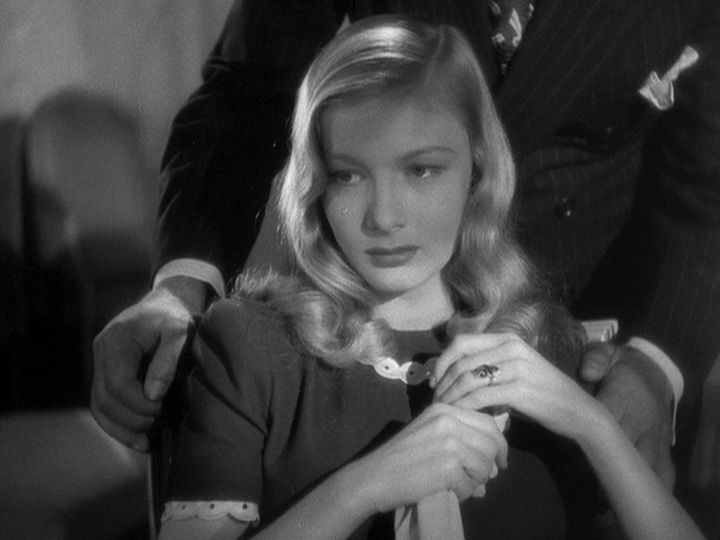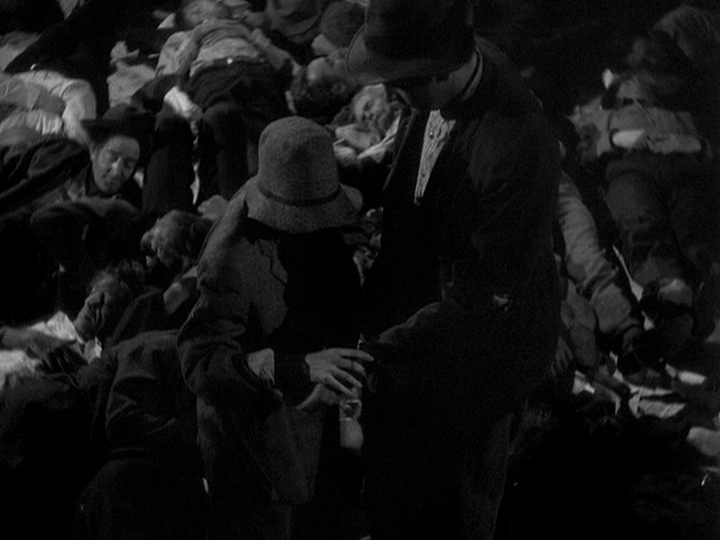 Most every account of Sullivan’s Travels describes the movie as being something between autobiography and artist’s testament. It’s easy to see why: the central character, John L. Sullivan, is a comedy director whose string of uncomplicated hits has pleased the studio but left the man deeply unsatisfied. Sullivan sets out to make his first serious movie, O Brother, Where Art Thou?, a raw examination of uncomfortable times. And likewise laugh maestro Sturges carves out a new and grim register—a socially conscious contemporary portrait. (With a little sex in it.)
Most every account of Sullivan’s Travels describes the movie as being something between autobiography and artist’s testament. It’s easy to see why: the central character, John L. Sullivan, is a comedy director whose string of uncomplicated hits has pleased the studio but left the man deeply unsatisfied. Sullivan sets out to make his first serious movie, O Brother, Where Art Thou?, a raw examination of uncomfortable times. And likewise laugh maestro Sturges carves out a new and grim register—a socially conscious contemporary portrait. (With a little sex in it.)
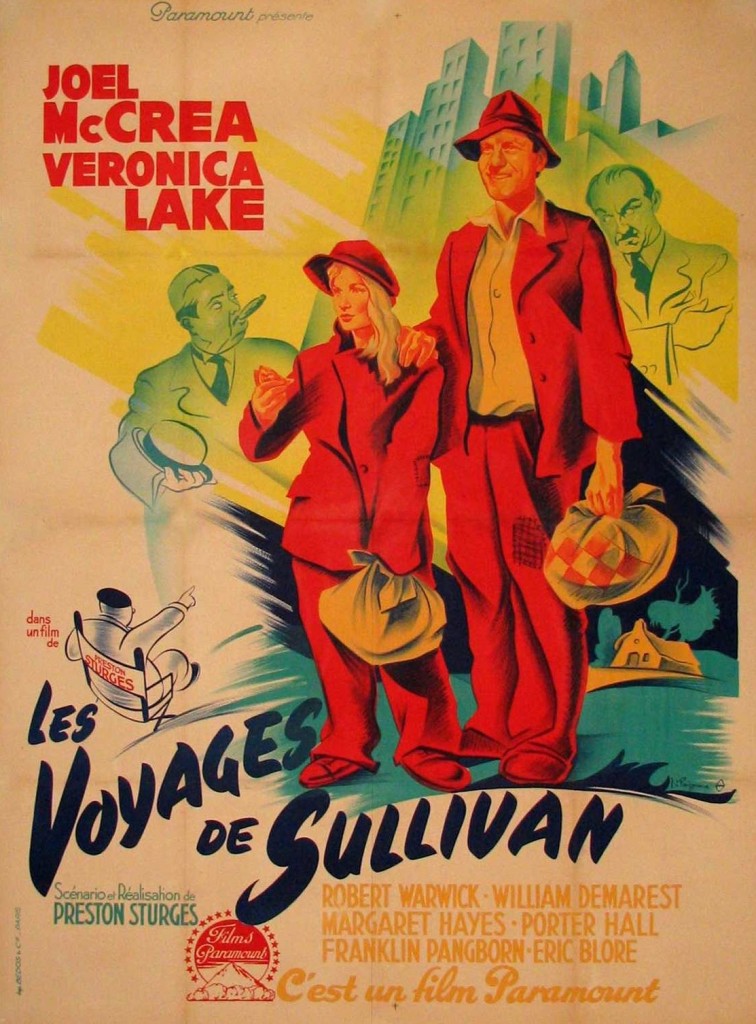 Everyone assures Sullivan that he underrates comedy; only a highly paid Hollywood professional would be so aloof to think that the common man prefers a dash of humanly-scaled cinema-soot to a good chuckle. By the end of Sullivan’s Travels, we may as well concede the point, too: a Pluto cartoon (and a very unfunny one, at that) earns pride of place in a rural black church, with no competing tract in sight. I may falter sometimes, Sturges seems to be saying, I may fall prey to Social Significance now and again, but I don’t doubt that comedy is king. Don’t you doubt it either—I’m doing my part, in my way.
Everyone assures Sullivan that he underrates comedy; only a highly paid Hollywood professional would be so aloof to think that the common man prefers a dash of humanly-scaled cinema-soot to a good chuckle. By the end of Sullivan’s Travels, we may as well concede the point, too: a Pluto cartoon (and a very unfunny one, at that) earns pride of place in a rural black church, with no competing tract in sight. I may falter sometimes, Sturges seems to be saying, I may fall prey to Social Significance now and again, but I don’t doubt that comedy is king. Don’t you doubt it either—I’m doing my part, in my way.
It’s a testament to the complexity and craft of Sullivan’s Travels that this clean, somewhat self-aggrandizing thesis falls far short in describing what’s going on here. Sturges hardly practices what he preaches; one doesn’t leave Sullivan’s Travels complaining about all the hobo stuff and longing for an extra reel of slapstick. (Indeed, the latter sequences rival “Playful Pluto” in provoking a non-reaction among modern audiences. As Otis Ferguson aptly noted in his mixed review of Sullivan’s Travels, “when [Sturges] wants fun in a swimming pool, no less than four people have to fall or be pushed in.”)
Sullivan is also rather an inapt surrogate for Sturges. Much as he would later complain of his scripts being insensitively treated by other directors in the decade before he commanded the megaphone himself, Sturges’s 1930s output in no way resembles Sullivan’s Hay Hay in the Hayloft or Ants in Your Plants of 1939. (For what it’s worth, it was Preston Black accorded the unenviable reins of the Three Stooges’ 1936 two-reeler “Ants in the Pantry,” depths to which Sturges never sank.) Indeed, Sturges received sole credit and a percentage of the gross on The Power and the Glory and got the chance to adapt Ferenc Molnár for The Good Fairy. His two scripts eventually realized by Mitchell Leisen, Easy Living and Remember the Night, are elegant classics with adult concerns undiluted by lowbrow concessions.
When we arrive at the projects written and directed by Sturges, the analogy totally disintegrates. His first effort, The Great McGinty, won an Academy Award for Best Original Screenplay. Exhibitor Arthur Mayer cited it among a dozen other low-budget pictures that bested five-million-dollar blockbusters for innovation and quality. It’s a personal project, not the product of a studio cog, calibrated for small-town popularity. What’s more, The Great McGinty is a film of obvious, if confused, social dimensions. It’s about machine politics, ballot-stuffing, graft, and garden-variety corruption.
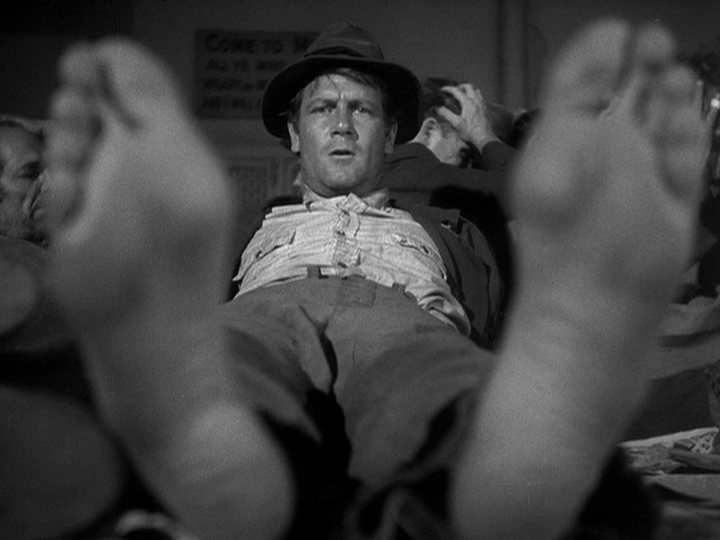 Actually, it’s the political aspect of The Great McGinty that wears thinnest today. As satire, it feels casually toothless, resolutely non-partisan and free of ideology. Brian Donlevy rises from bum to alderman to reform mayor to machine-backed governor, but without any discernible convictions or constituency. That’s the cynical and unearned point: the American people don’t know what they want, an empty suit is as good as a genuine populist, it’s all a game for the sophisticate’s amusement. (H. L. Mencken would’ve loved it if he’d ever sullied himself with a mere movie.) If The Great McGinty is worth revisiting today, it’s for the depth and shading of the performances by Donlevy and Akim Tamiroff and the completely unexpected and sensitive account of the marriage of convenience between Donlevy and Muriel Angelus.
Actually, it’s the political aspect of The Great McGinty that wears thinnest today. As satire, it feels casually toothless, resolutely non-partisan and free of ideology. Brian Donlevy rises from bum to alderman to reform mayor to machine-backed governor, but without any discernible convictions or constituency. That’s the cynical and unearned point: the American people don’t know what they want, an empty suit is as good as a genuine populist, it’s all a game for the sophisticate’s amusement. (H. L. Mencken would’ve loved it if he’d ever sullied himself with a mere movie.) If The Great McGinty is worth revisiting today, it’s for the depth and shading of the performances by Donlevy and Akim Tamiroff and the completely unexpected and sensitive account of the marriage of convenience between Donlevy and Muriel Angelus.
Sturges’s next film, Christmas in July, beautifully integrates the political and personal strands where The Great McGinty faltered. There is no more tender reproach to the righteousness of the prevailing economic order in all of American cinema. Here is a film about how people live, the small delusions they tell themselves, how they relate to other people, what they want and the tentative ways they express it. Early on in Christmas in July, Harry Hayden, playing Dick Powell’s supervisor, delivers an extraordinary monologue about a career in middle-management that fleetly sketches the emotional imperatives of capitalism:
I used to think about $25,000, too, and what I’d do with it. That I’d be a failure if I didn’t get ahold of it. Then one day I realized I was never going to have $25,000, Mr. MacDonald. And then another day a little bit later—considerably later—I realized something else. Something I’m imparting to you now, Mr. MacDonald. I’m not a failure; I’m a success. You see, ambition is all right if it works. But no system could be right where only half of one percent were successes and all the rest were failures. That wouldn’t be right. I’m not a failure. I’m a success. And so are you—if you earn your own living, pay your bills, and look the world in the eye. I hope you win your $25,000, Mr. MacDonald, but if you shouldn’t happen to, don’t worry about it. Now get the heck back to your desk and try to improve your arithmetic.
The incisiveness of this passage stands in immediately evident contrast to the literal allegory that opens Sullivan’s Travels, with Capital and Labor scrapping it up atop a moving train car.
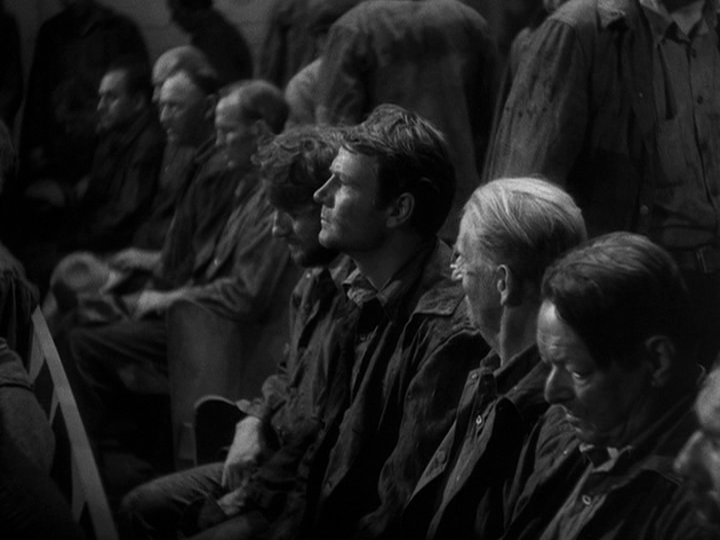 It’s true that Sullivan’s Travels, like The Great McGinty, falls short as social expose. Sturges is most comfortable with characters enfranchised through eloquence; anybody can get by so long as she carries half a dozen readymade retorts in her back pocket and can dish it out at 200 miles per minute. (It’s a measure of Sturges’s democratic spirit that one-liners are equally divided between headliners and bit players; in a Sturges movie, the butlers and janitors and Pullman porters speak as intently and confidently as anyone else.) Montages of the downtrodden, as we get in Sullivan’s Travels, are flatly not Sturges’s talent. Indeed, they’re to be observed in silence, with none of the unwashed getting in any wisecracks. As both social insight and social empathy, these scenes fall well below the standard set by The Grapes of Wrath and innumerable Warner Brothers pictures of the ‘30s (Wild Boys of the Road and Heroes for Sale being the unkindest comparisons).
It’s true that Sullivan’s Travels, like The Great McGinty, falls short as social expose. Sturges is most comfortable with characters enfranchised through eloquence; anybody can get by so long as she carries half a dozen readymade retorts in her back pocket and can dish it out at 200 miles per minute. (It’s a measure of Sturges’s democratic spirit that one-liners are equally divided between headliners and bit players; in a Sturges movie, the butlers and janitors and Pullman porters speak as intently and confidently as anyone else.) Montages of the downtrodden, as we get in Sullivan’s Travels, are flatly not Sturges’s talent. Indeed, they’re to be observed in silence, with none of the unwashed getting in any wisecracks. As both social insight and social empathy, these scenes fall well below the standard set by The Grapes of Wrath and innumerable Warner Brothers pictures of the ‘30s (Wild Boys of the Road and Heroes for Sale being the unkindest comparisons).
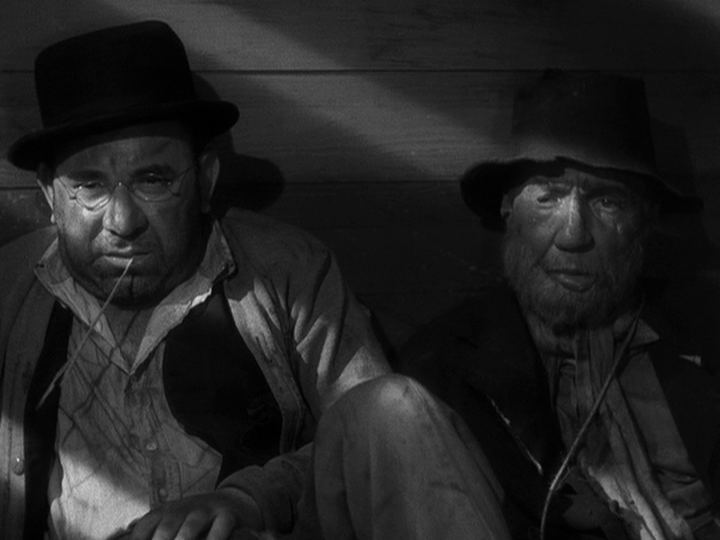 But to complain of this is to confuse Sullivan’s Travels for O Brother, Where Art Thou? The subject of Sullivan’s Travels is not so much comedy or art or poverty but the shortcomings of well-intentioned and well-heeled activism. (It shares this quality with 1941’s other great liberal satire of liberalism, Citizen Kane.) First-time viewers are often put off by the herky-jerky narrative line of Sullivan’s Travels; it constantly interrupts its own satire, short-circuiting plot developments to send Sullivan back to Hollywood, back to luxury, back to the unsettling conclusion that maybe he really isn’t qualified to opine on any of this. This vulnerability and doubt is the heart of the movie, not least because we’re often inclined to agree with it; what does Sullivan know about garbage cans?
But to complain of this is to confuse Sullivan’s Travels for O Brother, Where Art Thou? The subject of Sullivan’s Travels is not so much comedy or art or poverty but the shortcomings of well-intentioned and well-heeled activism. (It shares this quality with 1941’s other great liberal satire of liberalism, Citizen Kane.) First-time viewers are often put off by the herky-jerky narrative line of Sullivan’s Travels; it constantly interrupts its own satire, short-circuiting plot developments to send Sullivan back to Hollywood, back to luxury, back to the unsettling conclusion that maybe he really isn’t qualified to opine on any of this. This vulnerability and doubt is the heart of the movie, not least because we’re often inclined to agree with it; what does Sullivan know about garbage cans?
In scrutinizing the erosion of Sullivan’s certainty—from the earnest conviction that challenging times demand gritty art to the realization that his own privilege cannot be imagined away, despite the costume department’s very best tramp get-up—Sullivan’s Travels challenges us in the way a genuinely apolitical movie never could. It records experiences that are familiar, even for those without a filmmaker’s wealth: the feeling that we can’t get away from our station, the fear that our efforts at understanding other people will reek of fraudulence. Comedy’s hard, but empathy’s harder.
The Northwest Chicago Film Society will open its 2012 season with a screening of Sullivan’s Travels on Wednesday, January 4 at the Portage Theater. Please see our current calendar for more information. Restored 35mm print courtesy of Universal, special thanks to Paul Ginsburg and Dennis Chong.

